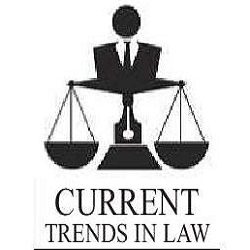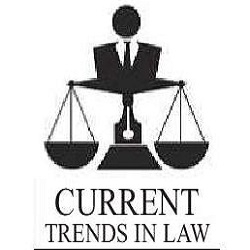Condoning Delay
25 Nov 2024 11:23:45


By Adv. R. S. Agrawal :
The observations
made must not be
understood as an absolute proposition. That was an on-going suit in that case posted for final hearing after a lapse of seven years of its institution. It was not a second appeal filed by a villager residing away from the city, where the court is located. The defendant is also not a rustic ignorant villager, but a private limited company with its head office at Calcutta itself and managed by
educated businessmen, who know where their interest lies.
IN THE judgement of the Special Leave Petition (Civil) – Rajneesh Kumar & Another v. Ved Prakash, delivered on November 21, 2024, Justice J.B. Pardiwala and Justice R. Mahadevan have quoted an observation from its judgment of the case- Bharat Barrel & Drum Mfg.
Co. v. The Employees State Insurance Corporation- (1971) 2 SCC 860, wherein the Supreme Court has declared that “the necessity for enacting periods of limitation is to ensure that actions are commenced within a particular period, firstly to assure that availability of evidence documentary as well as oral to enable the defendant to contest the claim against him; secondly to give effect to the principle that law does not assist a person, who is inactive and sleeps over his rights by allowing them when challenged or disputed to remain dormant without asserting them in a court of law.
“The principle which forms the basis of this rule is expressed in the maxim, vigilantibus, non dermientibus, jura sub veniunt (the laws give help to those who are watchful and not to those who sleep. Therefore, the object of the statutes of limitations is to compel a person to exercise his right of action within a reasonable time and also to discourage and suppress stale, fake or fraudulent claims.”
In view of this principle, the Court found no error in the impugned judgement of the Himachal Pradesh High Court, Shimla, delivered on December 9, 2019. In view of according to the Supreme Court, there is no reason to interfere, hence it dismissed two Special Leave Petitions, which had arisen from the order passed by the HP High Court allowing Civil Revision Application filed by the Original Defendant/Counter claimant and thereby quashing and setting aside the order passed by the District Judge, Shimla, condoning the delay of more than 534 days in filing the appeal by the petitioners (Original Plaintiffs herein).
As the petitioners herein, were dissatisfied with the ex-parte order passed in the counter claim challenged the same before the first appellate Court by way of an appeal. However, the said appeal was time barred by 534 days. The first appellate court condoned the delay of 534 days in filing the appeal, essentially on the ground that the litigant should not suffer on account of negligence on the part of the advocate and the Court should adopt a liberal approach in condoning the delay.
The respondents herein challenged the first appellate court’s order of condoning the delay, before the HC by filing revision. The HC allowed the civil revision and quashed and set aside the order passed by the first appellate court, which had condoned the delay of 534 days.
This HC order led to filing of challenge to the impugned petitions before the Supreme Court.
According to the HC, since the respondents did not approach the HC with clean hands and have rather suppressed the material facts, that too, deliberately an intentionally regarding pendency of the counter-claim at least on March 22, 2012 and thereby tried to gain an unfair advantage from the Court, and that too, by casting serious allegations on the previous lawyers, no indulgence much less discretion could have been exercised in favour of the respondents/plaintiffs, that too for condoning the delay of more than 534 days.
The Supreme Court has noted in its Order that it appears that entire blame has been thrown on the head of the advocate, who was appearing for the petitioners in the trial court. The Court has noticed over a period of time a tendency on the part of litigants to blame their lawyers of negligence and carelessness, which by itself cannot be a ground to condone long and inordinate delay, as the litigant owes a duty to be vigilant of his own rights and is expected to be equally vigilant about the judicial proceedings pending in the court initiated at his instance. Therefore, a litigant should not be permitted to throw entire blame on the head of the advocate and thereby to disown him any time and seek relief.
In this context, the SC has referred to its decision in the case- Salil Dutta v. T M & M C Private Ltd.-(1993) 2 SCC 185, wherein the Court has observed that: “8.
The advocate is agent of the party. His acts and statements, made within the limits of authority given to him are the acts and statements of the principal, the party, who engage him. It is true that in certain situations, the Court may in the interest justice, set aside a dismissal order of an ex-parte decree notwithstanding the negligence and/or misdemeanor of the advocate where it finds that the client was an innocent litigant but there is no such absolute rule that a party can disown its advocate at any time and seek relief. No such absolute relief immunity can be recognised. Such an absolute rule would make the working of the system extremely difficult.
“The observations made in Rafiq (AIR 1981 SC 1400) must not be understood as an absolute proposition.
That was an on-going suit in that case posted for final hearing after a lapse of seven years of its institution. It was not a second appeal filed by a villager residing away from the city, where the court is located. The defendant is also not a rustic ignorant villager, but a private limited company with its head office at Calcutta itself and managed by educated businessmen, who know where their interest lies.
“It is evident that when their applications were not disposed of before taking up the suit for final hearing, they felt piqued and refused to appear before the Court. May be, it was part of their delaying tactics, as alleged by the plaintiff.
May be not. But one thing is clear. They chose not to co-operate with the court. Having adopted such a stand towards the court, the defendant has no right to ask its indulgence.
Putting entire blame upon the advocate and trying to make it out as if they were totally unaware of the nature or significance of the proceedings isa theory which cannot be accepted and ought not to have been accepted. In the result, the Supreme Court has dismissed the petitions.
